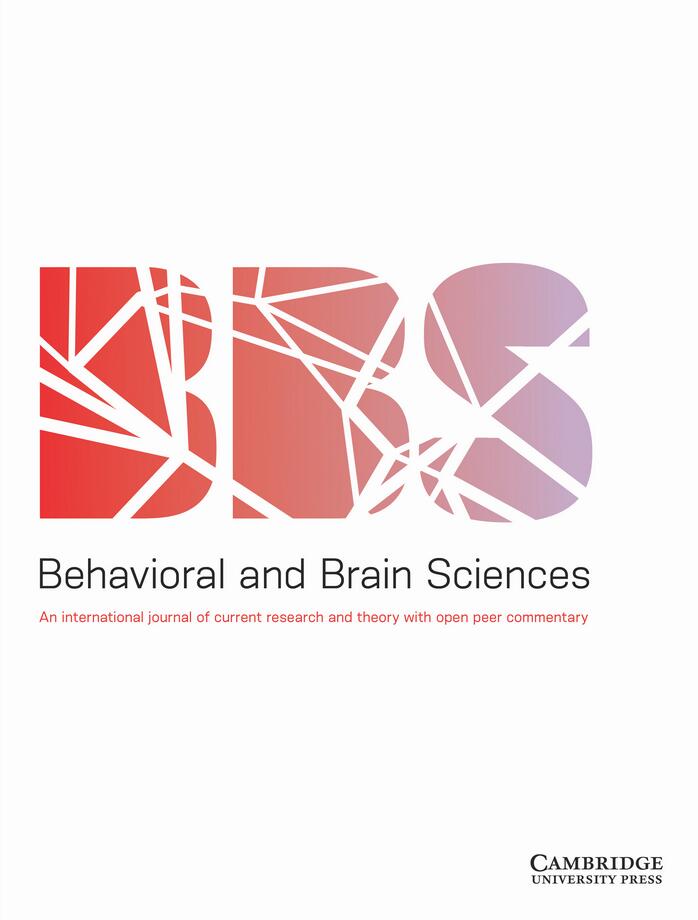将社会认知机制重新纳入累积技术文化:社会互动是儿童早期知识习得的机制。
IF 16.6
1区 心理学
Q1 BEHAVIORAL SCIENCES
引用次数: 1
摘要
Osiurak和Reynaud提出了一种统一的认知方法来研究累积技术文化,认为它始于非社会认知技能,使人类能够学习和发展新的技术信息。通过对儿童如何通过与他人互动获取知识的研究,我们认为社会学习对人类获取技术信息至关重要。本文章由计算机程序翻译,如有差异,请以英文原文为准。
Putting social cognitive mechanisms back into cumulative technological culture: Social interactions serve as a mechanism for children's early knowledge acquisition.
Osiurak and Reynaud offer a unified cognitive approach to cumulative technological culture, arguing that it begins with non-social cognitive skills that allow humans to learn and develop new technical information. Drawing on research focusing on how children acquire knowledge through interactions others, we argue that social learning is essential for humans to acquire technical information.
求助全文
通过发布文献求助,成功后即可免费获取论文全文。
去求助
来源期刊

Behavioral and Brain Sciences
医学-行为科学
CiteScore
1.40
自引率
1.70%
发文量
353
期刊介绍:
Behavioral and Brain Sciences (BBS) is a highly respected journal that employs an innovative approach called Open Peer Commentary. This format allows for the publication of noteworthy and contentious research from various fields including psychology, neuroscience, behavioral biology, and cognitive science. Each article is accompanied by 20-40 commentaries from experts across these disciplines, as well as a response from the author themselves. This unique setup creates a captivating forum for the exchange of ideas, critical analysis, and the integration of research within the behavioral and brain sciences, spanning topics from molecular neurobiology and artificial intelligence to the philosophy of the mind.
 求助内容:
求助内容: 应助结果提醒方式:
应助结果提醒方式:


